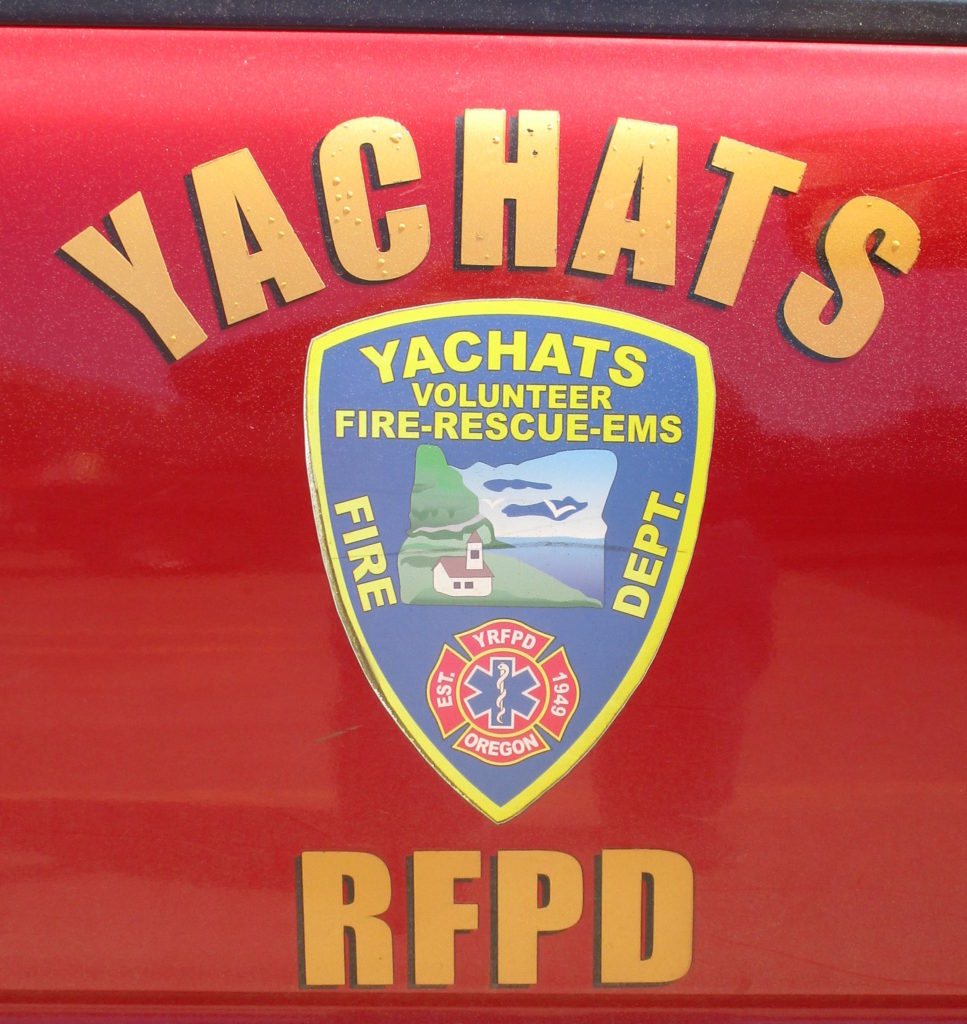
By QUINTON SMITH/YachatsNews.com
The Yachats Rural Fire Protection District’s request for a big, new tax levy went down in flames Tuesday as voters turned down a money appeal for the first time in the district’s history.
The district’s levy request lost 566 to 729 with 99 percent of ballots counted, according to the Lincoln County elections department. That is a margin of 56 percent no votes to 44 percent yes votes.
The district, which stretches from the south edge of Waldport through Yachats, up the Yachats River and south to Tenmile, had asked voters to authorize a third tax levy of $1.59 per $1,000 assessed value.
“I’m disappointed, but the board is going to have to address this,” said Ed Hallahan, the longtime board member who had organized the levy campaign. “The law allows us to try again in May and I will push for that.”
The next regularly scheduled meeting of the five-member board is at 10:30 a.m. Monday at the main station on the north edge of the Yachats city limits.
Two other fire district levy requests in Lincoln County were approved Tuesday.
- Voters in the Seal Rock Fire District approved 1,001 to 445 a five-year levy of 40 cents per $1,000 to fund services. A request for an 80 cent levy in May was defeated by 169 votes, the same time a new majority of the district board was elected.
- Voters in the North Lincoln Fire District, which covers an area stretching from Lincoln City to Otis, approved 2,645 to 1,758 a new five-year levy of $1.22 per $1,000 assessed value. A request in May for the same amount was defeated by 20 votes.
The Yachats Rural Fire Protection District has two other five-year levies of 59 cents and 61 cents that began in 1998 and 2007 and were last approved by 3-to-1 margins in 2019 and 2018.
District voters also approved a $7.7 million building bond in 2016, but that money cannot be used for year-to-year operating expenses.
As costs rose over the years, the board did not ask for increases in the two tax levies. That, plus a few financial missteps, forced the district to begin borrowing money to make ends meet from April to November, when property taxes arrived.
To get out of that hole, the district’s five-member board came up with the $1.59 per $1,000 request, which would have added $477 to the tax bill of property assessed at $300,000. After one year, the board promised to let the older, 59 cent per $1,000 levy expire – effectively making the rate increase $1 per $1,000 assessed value in the second year.
If the board decides to do so, the next levy election would be in May.
With six paid firefighter/paramedics and two administrators, the board will also have to determine whether to continue to staff South Lincoln Ambulance, a private, nonprofit controlled by fire district administrators Frankie Petrick and Shelby Knife. The remainder of Lincoln County uses Pacific West Ambulance for those services.
Hallahan has said the board made mistakes by letting its finances get out of hand. But the district was hesitant to ask for increases on one or both existing levies in the past 8-10 years because they knew the district would be asking voters to approve a bond for a new fire station. Voters did just that – okaying a $7.7 million bond in 2016.
Hallahan said keeping the 59 cent levy until 2023 – a one-year overlap with the proposed, new levy – would solve the district’s immediate money problems.
But the board and district administrators never specified how it would use the $944,000 the new levy would bring in its first year. Nor has it specified how it will use the $338,000 in one-time proceeds it got last month for the sale of its former station in downtown Yachats.
Hallahan and board member Drew Tracy have said the district wants to hire 1-2 more firefighter/paramedics – it has six now – to help staff its station up the Yachats River and to cut overtime costs when a firefighter is on vacation, sick or in training. The total cost of one firefighter is about $100,000 a year.
The district says it is also time to put money into reserve to replace or repair equipment – there’s just $25,000 in there now – and to establish a cash carryover to lower the $350,000 to $500,000 it has been borrowing each year to cover operating costs.




Try again in May? What part of “no” don’t they understand?